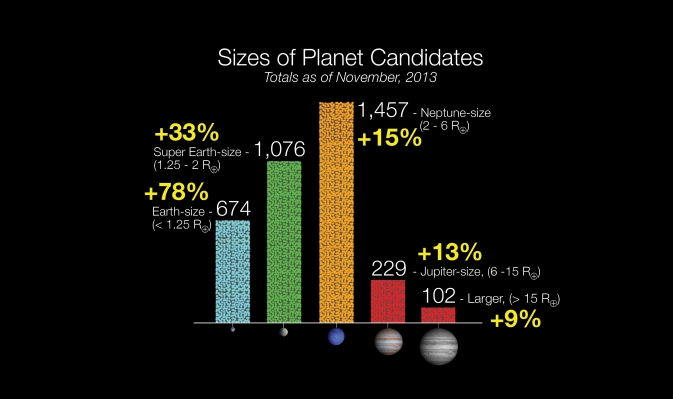
Scientists from around the world are gathered this week at NASA's Ames Research Center in Moffett Field, Calif., for the second Kepler Science Conference, where they will discuss the latest findings resulting from the analysis of Kepler Space Telescope data.
Included in these findings is the discovery of 833 new candidate planets, which will be announced today by the Kepler team. Ten of these candidates are less than twice the size of Earth and orbit in their sun's habitable zone, which is defined as the range of distance from a star where the surface temperature of an orbiting planet may be suitable for liquid water.
At this conference two years ago, the Kepler team announced its first confirmed habitable zone planet, Kepler-22b. Since then, four more habitable zone candidates have been confirmed, including two in a single system.
For a little more insight into the project see this:
http://www.nasa.gov/content/nasa-kepler-results-usher-in-a-new-era-of-astronomy/
